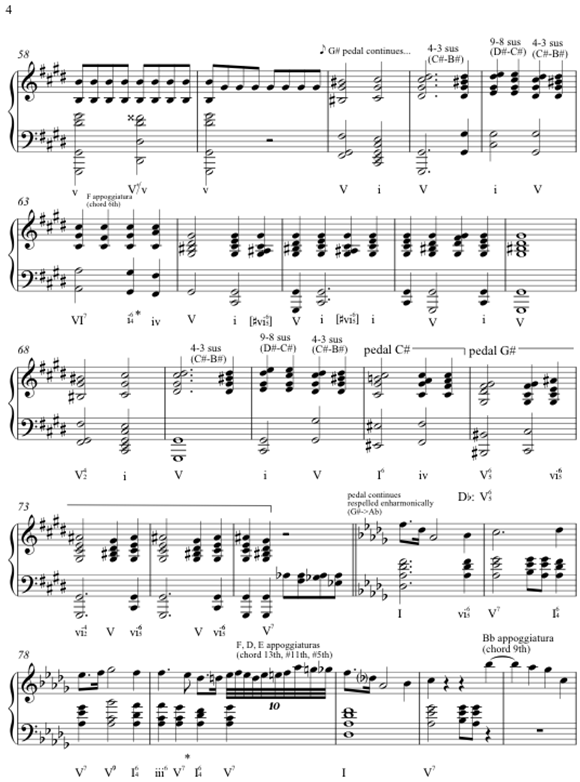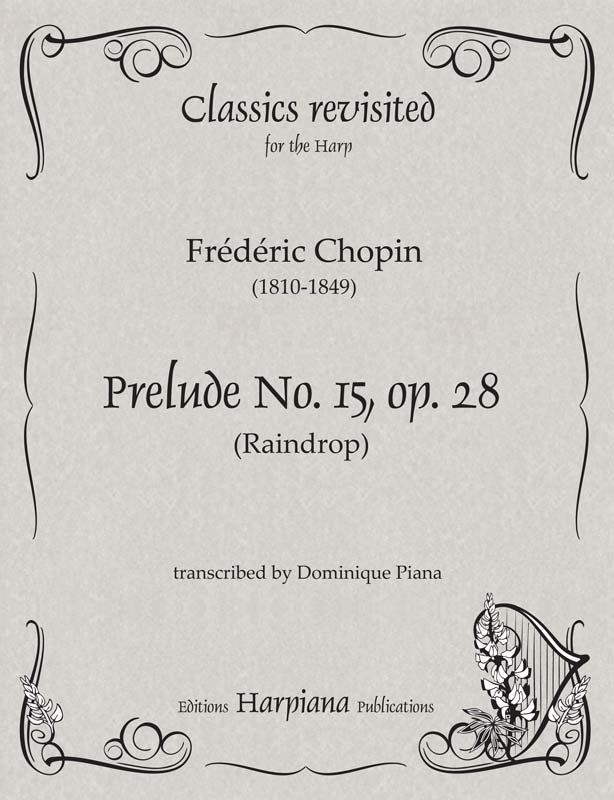


Information - Concerts, News,FAQs, Archives. Organs - Electronic (B3 etc.), Pipe, Theatre.
#CHOPIN PRELUDE 15 PROFESSIONAL#
Who's Who - Professional Pianists on Piano World Member Recordings - Non Classical Pianist CornerĮVENTS! Piano Concerts, Recitals, Competitions.įun Stuff! - Parties, Tours, Projects & More.įorum Members Parties, Tours, Cruises, & M. MY NEW PIANO or KEYBOARD! - Share Your Story! Now Bach to my practice.ĭigital Pianos - Electronic Pianos - Synths &a. This one of the pieces I would love to dig it up and perfect it to my satisfaction. I played it last night after I saw the post. Also remember A flat and G sharp I think that needed special care. I remember we paid attention to voicing of long melody lines and dynamic changes. We all loved the piece and practiced hard. I had no idea about advanced music theory / different interpretation at that time. I have studied it when I was 12 years old along with my friend mentioned above. We can mature the piece during our life time. It may be a little stretch but no harm done. As you mentioned, this is a great piece to learn voicing and long phrasing. If someone likes the piece and have done other prelude, Bach inventions, etc, why not? We can learn a lot from the piece even if we may not be able to play right from the beginning. You won't get it it right from the beginning. Thing I loved about this piece, no matter how bored I got with it, as I play it I can always get lost in the emotion of the piece and you can always interpret the feeling in different ways.īut I have a different opinion about when you can attempt the piece. The darkness of the middle section takes some experimenting hands perhaps as you can't really play this straight through w a metronome rythym, you have to spell out the rubato to make the theme of raindrop and meloncholy more natural sounding.Īlso the "raindrop" beat on the left hand make it a hint of sound throughout the piece don't bring it to the forefront (like most pieces of course) only emphasizing it at certain key turning points in the melody ( this is just me bringing out advice at that time when I didn't know better.

#CHOPIN PRELUDE 15 HOW TO#
I didn't really understand how to derive it at that time. Technically it isn't that difficult and the speed is up to you to determine and I believe the slower you go in certain parts really bring out more feeling in this pieceīut the challenge was the phrasing and legato of the piece. I flipped through the pages of a freshly bought literature book and thought visibly this was easy enough to learn.

Raindrop was a piece I learned when I first got back to the piano in 2007. And get the Preludes recording performed by Samson Francois You know, if you will not try, you will never know, but if you will few after some tries, that this is far beyond (I do not mean hard, or demaning, I mean exactly what I wrote - far beyond). There are also very suble rubatos, and other things. You know, I do not want to discourage you, but just wanted to point out some maim problems. Will you handle the crescendo, which will last over few bars and last like 20 seconds? Will you be able to play tiny little quiet drops of Aflat key, while playing big octaves in the same time? Are you able to play two voices simultaneously in one hand? They are quite different, so thus I am talking about it.īut, hey, you know, studying the editions, is for some extreme pure pianinsts, I've never bothered about it, unless there are some really major changes.Īnd yes, the 15th Prelude it's much more difficult than the previous one, both techncally and musically, there are few moments which can be unpleasant for the begginer pianist. The National Edition (this is it's name, for those one who don't know, issued on 150th anniversary of Chopin's birthday) has all white cover with written CHOPIN in the middle and then in the bottom right what is inside - preludes, polonaises and etc. The one you posted, is Paderewski Edition, until 1999 - the only edition on which all polish (and many on the world perhaps) were learning.


 0 kommentar(er)
0 kommentar(er)
